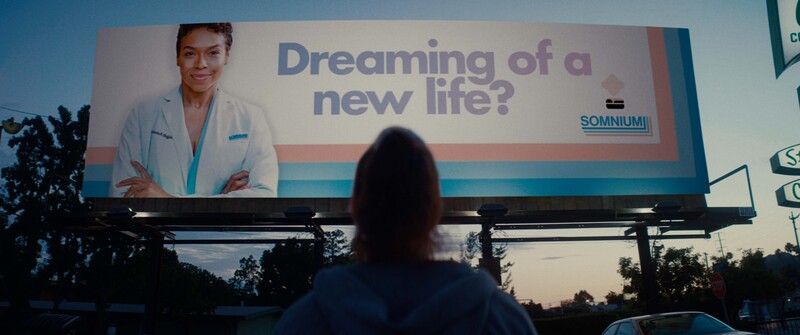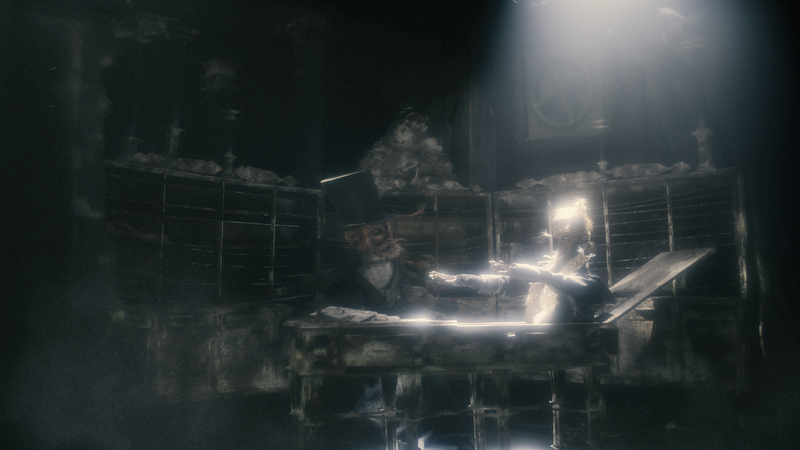
Where the Surreal Feels Dangerously Familiar
MOVIE REVIEW
Somnium
–
Genre: Sci-Fi, Horror, Drama
Year Released: 2024, 2025
Runtime: 1h 32m
Director(s): Racheal Cain
Writer(s): Racheal Cain
Cast: Chloë Levine, Will Peltz, Peter Vack, Johnathon Schaech, Grace Van Dien, Gillian White, Draya Michele, Clarissa Thibeaux
Where to Watch: opens Theatrically August 29, 2025, in LA (Laemmle Glendale), September 6 in NYC (Roxy Cinema), and streaming on Digital HD September 9
RAVING REVIEW: SOMNIUM doesn’t waste time presenting itself as a straightforward horror story. Instead, Racheal Cain’s debut feature embraces the unstable terrain of dreams and ambition, using both as fuel for a haunting exploration of identity, exploitation, and the desperate pursuit of success. It’s a film that feels pulled straight from the subconscious, where every room hides another reflection of fear and every door opens onto an opportunity that could just as easily devour you.
The story centers on Gemma, played with conviction by Chloë Levine. After a painful breakup, she trades small-town roots for the promise of Los Angeles, the city where hope and hunger often blur. She finds herself balancing two worlds: the relentless gauntlet of auditions that demand constant reinvention and the eerie night shifts at Somnium. In this sleep clinic, dreams aren’t just observed but conjured into reality. It’s a setup loaded with metaphor—Hollywood itself is another kind of dream factory—and Cain plays it with a focus. The more Gemma seeks control, the less she has, as sleep and waking life merge into one another.
What elevates the film is Levine’s performance. Her portrayal of Gemma provides the fragility that the swirling dreamscapes threaten to consume. Levine carries the exhaustion of rejection, the flickering spark of ambition, and the creeping realization that she’s losing her grip. She doesn’t portray Gemma as a victim, but as someone clinging desperately to her identity while forces both external and internal attempt to strip it away. In many ways, the film becomes a chamber piece about a single mind under siege, with Levine embodying every fracture.
Cain’s production journey is almost as fascinating as the film itself. Beginning the script in 2011, she shot Gemma’s flashbacks in 2018 with a skeleton crew, then returned years later to complete the story. That gap—nearly half a decade—lends the film an unusual authenticity. When flashbacks appear, the actors are younger, their features telling, their energy different. Time itself is embedded in the footage, reinforcing the theme of dreams and memories coexisting with the present. The effect is subtle but undeniable, an accidental experiment in cinematic time travel.
SOMNIUM shines despite its modest budget. The sleep clinic becomes a liminal space, all fluorescent sterility and shadowed corners, suggesting something scientific yet fundamentally uncanny. The dream sequences, achieved with a mix of practical effects and minimal visual effects, are restrained rather than over-the-top. Cain and her limited team of VFX artists conjure 165 effects shots that rarely feel showy; they instead seep into the atmosphere, heightening the paranoia rather than dominating the frame. My only issue (and this is more personal than a critique) is that I wish “the creature” hadn’t been seen as clearly as it was. While it looked fantastic, it just gave the audience too much.
But while the visuals and concept are striking, the balance between horror and psychological drama is uneven. The film leans more heavily into its metaphor of Hollywood ambition than it does into terror, which may disappoint viewers expecting sustained scares. The horror is present, yes—nightmares that refuse to fade, moments of the uncanny, sleep paralysis rendered with disturbing clarity—but these emerge in bursts, not waves. Cain seems more interested in using horror as seasoning than as the main course. Depending on perspective, this restraint can feel refreshing or frustrating.
Where the film unquestionably succeeds is in mood; SOMNIUM builds a world that feels just slightly off-kilter, where even ordinary moments carry a shimmer of error. Auditions, hallway conversations, and clinic procedures all hum with dread, as if reality itself is conspiring against Gemma. This tone is amplified by Peter Ricq’s abrasive, uneasy score, which grates and swells at just the right moments, blurring the line between sound design and music. It’s less about guiding emotion and more about destabilizing it.
Supporting performances flesh out the edges of Gemma’s ordeal. Will Peltz, Peter Vack, and Grace Van Dien portray figures who are part of her journey, each contributing to the sense that everyone around her is both an ally and a threat. Johnathon Schaech provides a more grounded presence, though even he is caught in the swirl. Cain’s choice to cast social media personalities like Draya Michele, Kio Cyr, and Emily Mei in supporting roles also feels deliberate—a nod to the commodification of identity in modern Hollywood, where one’s digital presence can matter as much as talent.
Thematically, SOMNIUM is less about whether Gemma can escape her nightmares and more about whether anyone can truly escape the traps of ambition. The sleep clinic becomes an allegory for Hollywood itself—both promise to make dreams real, but both exact a cost that may be irreparable. Cain doesn’t offer an easy resolution, leaving audiences unsettled rather than comforted. The questions linger: how much of Gemma’s descent was manipulation, and how much was always within her? Was the nightmare ever separate from the reality she chased?
SOMNIUM stands as an accomplished debut. It’s jagged, imperfect, but deeply compelling, a film that chooses mood and metaphor over jump scares and spectacle. Cain proves herself a filmmaker worth watching, capable of transforming limitations into aesthetic choices and embedding a personal story into a genre framework. It doesn’t break free from its influences, but it doesn’t need to. Its uniqueness lies in its blend: the personal and the surreal, the grounded and the grotesque, the dream and the waking nightmare.
Please visit https://linktr.ee/overlyhonestr for more reviews.
You can follow me on Letterboxd, Instagram, Twitter, and YouTube. My social media accounts can also be found on most platforms by searching for 'Overly Honest Reviews'.
I’m always happy to hear from my readers; please don't hesitate to say hello or send me any questions about movies.
[photo courtesy of YELLOW VEIL PICTURES]
DISCLAIMER:
At Overly Honest Movie Reviews, we value honesty and transparency. Occasionally, we receive complimentary items for review, including DVDs, Blu-rays, CDs, Vinyl Records, Books, and more. We assure you that these arrangements do not influence our reviews, as we are committed to providing unbiased and sincere evaluations. We aim to help you make informed entertainment choices regardless of our relationship with distributors or producers.
Amazon Affiliate Links:
Additionally, this site contains Amazon affiliate links. If you purchase through these links, we may receive a commission. This affiliate arrangement does not affect our commitment to honest reviews and helps support our site. We appreciate your trust and support in navigating these links.



Average Rating